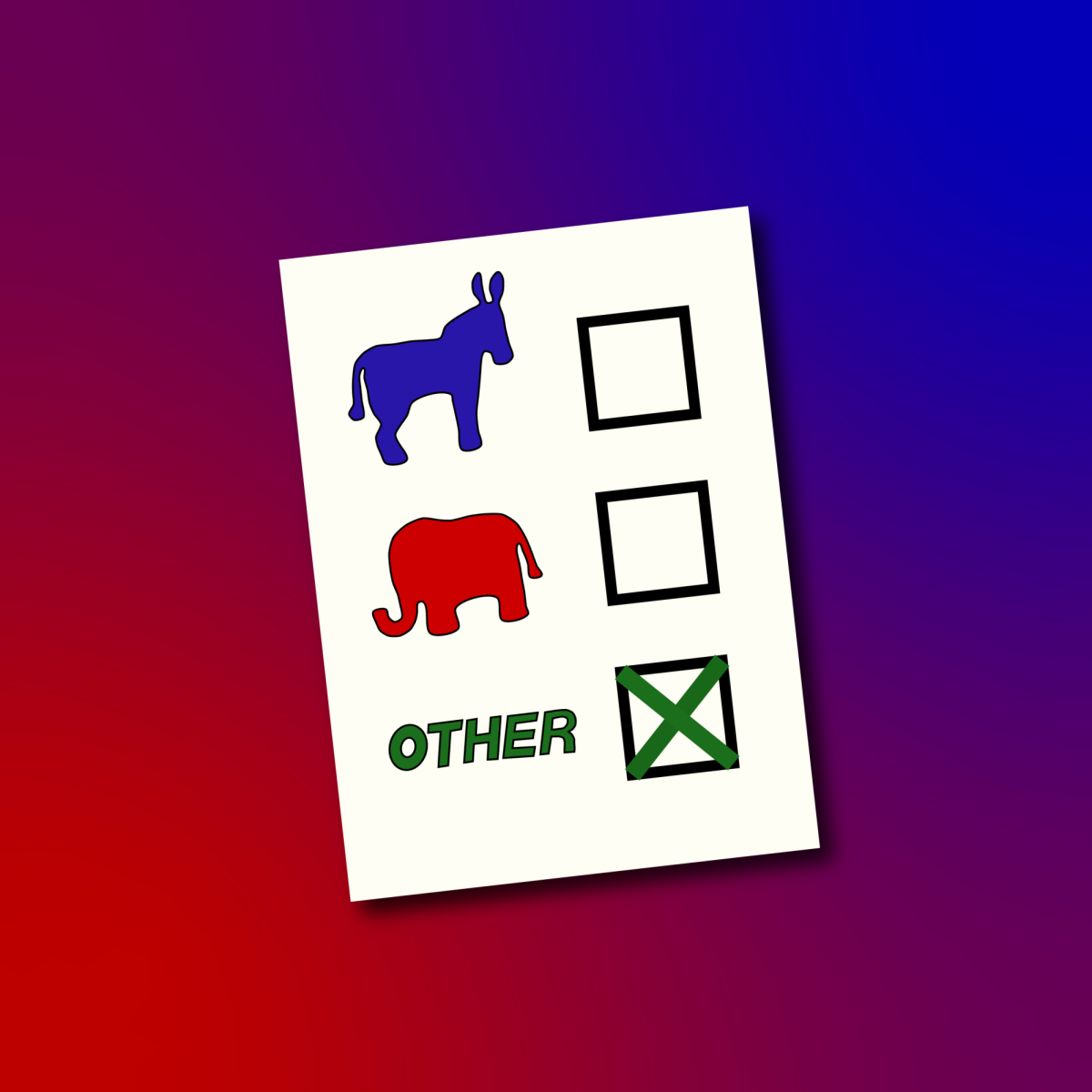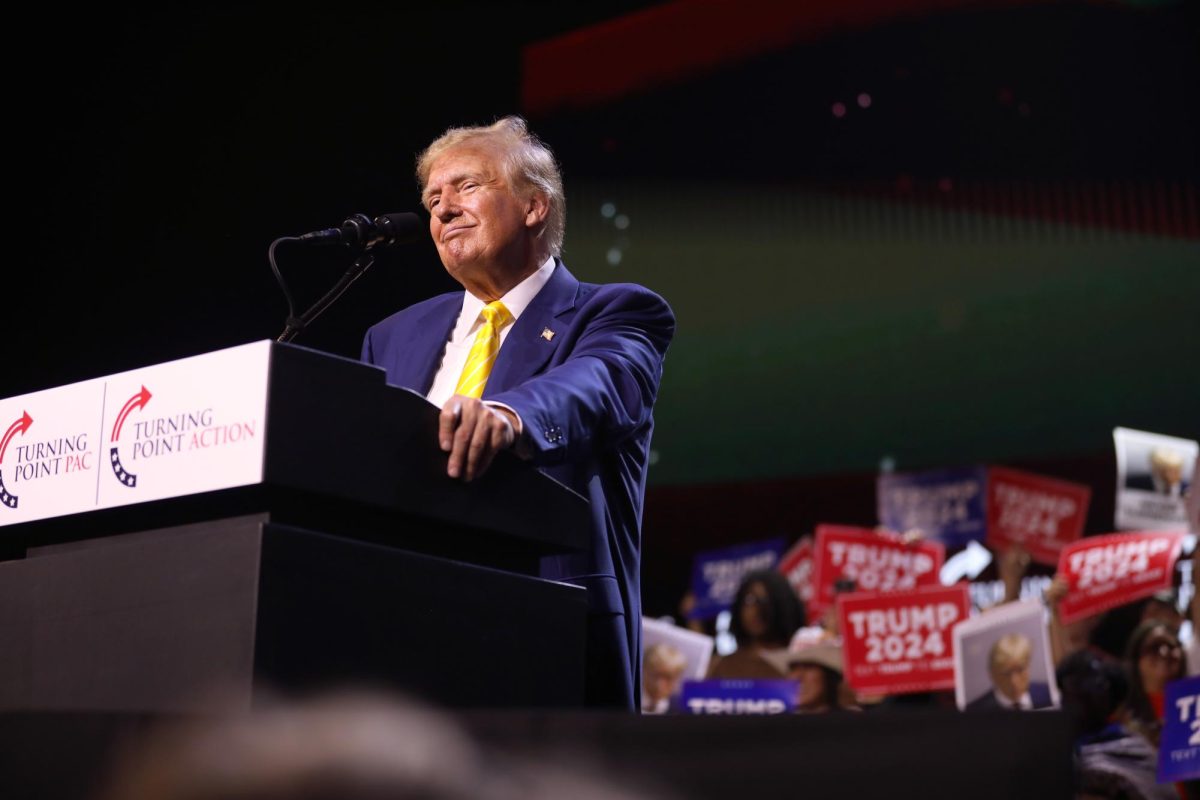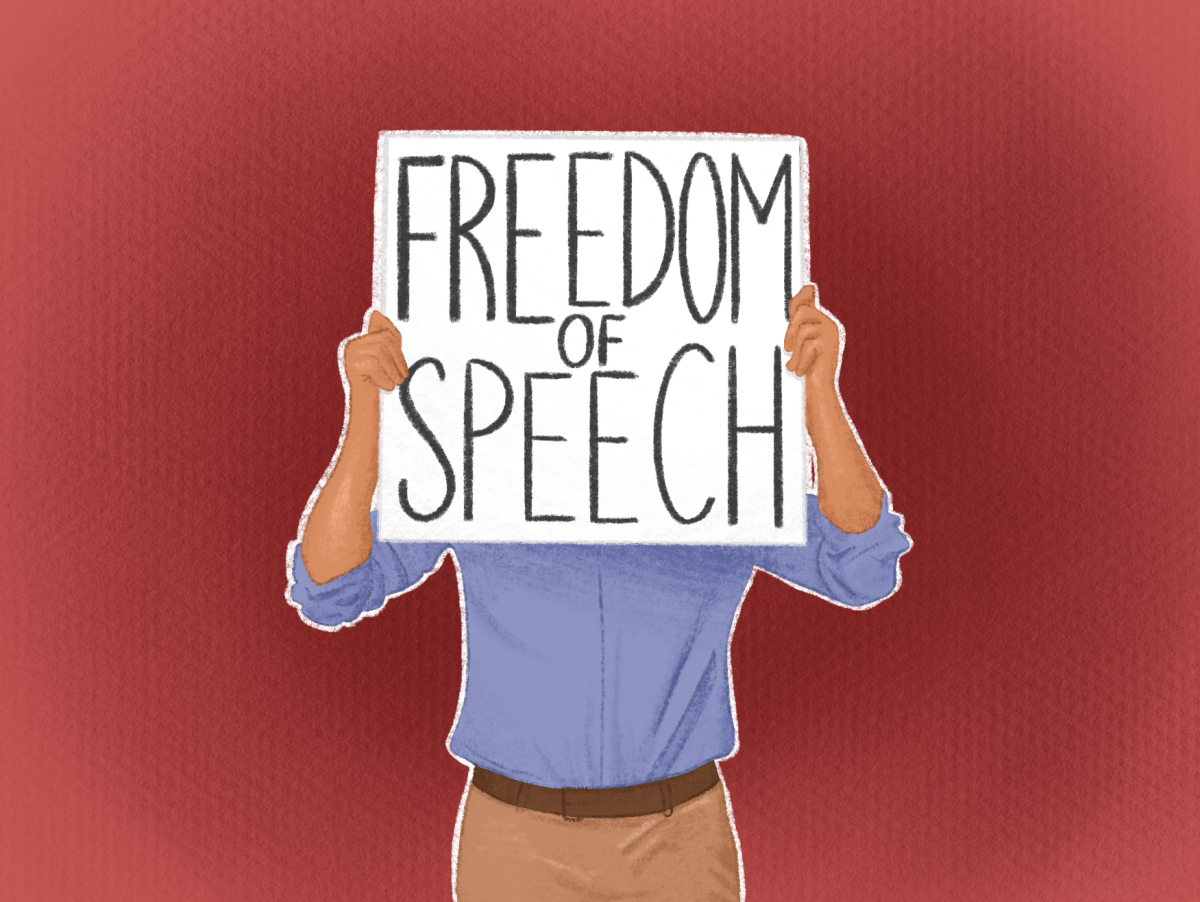With the 2024 election now decided and Donald Trump taking his place as the next president of the United States, many Democrats and those opposed to Trump are realizing that we have entered a new era of politics.
So how did we get here?
In 2016, many Democrats were angry with those who voted third party against Hillary Clinton and even more angry today with those who voted third party instead of supporting Kamala Harris. This begs the question: Did those votes for third-party candidates impact the election? More importantly, why did those voters feel that third-party candidates were a better choice than Democratic candidates?
One main reason for this change is the difficulty the Democratic Party has in maintaining a consistent voter base on issues. Whether we like it or not, the Republican Party has done a great job of creating a strong voter base and consistent opinions about the topics its voter base cares about. This is seen with the main topics Trump drove home in his campaign.
For example, immigration and the economy are some of the largest issues that Republicans care about, and Trump used this to his advantage during his campaign. Trump can spur emotions from his followers that cause them to react in ways that allow him to advance hateful rhetoric. For example, Trump warns his followers that the United States is being torn apart by illegal immigrants, and the only way to solve these problems is through mass deportation. stories about a child being murdered by illegal immigrants hit home with his supporters, even if it is generalizing an entire group of people based on one terrible event. While it may be difficult for me to understand how people can see past his criminal convictions, sexual abuse allegations and Jan. 6, 2021 involvement, these issues did not seem to sway his loyal base. Unlike the Democratic Party, Trump unified voters.
Democrats also had an abnormal election cycle. With President Joe Biden stepping out of the election in July, Democrats had to scramble to cobble together a new campaign in very limited time. Harris became the new Democratic candidate in July, with only 100 days to pick up where Biden left off.
Many political analysts believe Democrats went wrong when they did not hold a primary for their party nominee. In addition, they should have looked outside the Biden administration for a new candidate. One reason for these criticisms is the American distaste of the Biden administration, and while Kamala Harris attempted to distance herself from the presidency, which is disliked by a majority of the public, her attempt did not work well enough. Holding a primary also could have made the candidate feel selected by the people, rather than a president that so many do not support. The inconsistency in candidates within this election campaign season could also have made voters feel alienated and upset with Democrats.
Oftentimes, individuals who vote third party do so because they feel like their main voting issues are not being represented by the two primary Republican and Democratic candidates. When we look at this year’s young voting demographic block, 37% of 18 to 29-year-olds have an unfavorable view of both parties. Only 16% of the oldest voting block has an unfavorable view of both parties. This generational difference is clear, and one must wonder why so many young people are having difficulty supporting the two largest parties in the United States.
As a voter in the youngest voting demographic, I think an important thing to consider when trying to attract new voters to your political party is telling them that you care about their future but also attracting them through what they care most about. Voters in the oldest voting block have been voting for decades and are most likely locked into a specific party. Democratic and Republican parties have desperately tried to attract younger voters through their campaigns but to little avail. Fortunately or unfortunately, younger voters are not locked into a specific party yet.
For many young voters like me in Generation Z, this was our first chance to vote on issues that we care about, including climate change and the Israel-Hamas war, which were not heavily discussed in Harris’ campaign.
Not too long ago, college students across the country were holding protests against the violence occurring in Gaza. 49% of young people ages 18-29 believe an immediate ceasefire is necessary. Many young voters feel like this conflict needs to be a top priority, especially when innocent children and people are dying constantly; however, American politics does not seem to be focusing on this issue at all. If this was all it took to secure the youth vote, why did Harris not include a firmer stance on the conflict in her campaign?
The answer to this question is highly complicated, and the Harris campaign probably did not want to take a stance because a lot of the country is extremely misinformed about the Israel-Hamas war. Even though the conflict in Gaza is politically polarizing, this does not mean that advocating for human rights should be lost to the fear of losing financial support. This is the opinion of young voters and the Democratic Party needs to hear them.
If you voted Green or third-party this election, did you remove critical votes from the Republican and Democratic candidates? Are you the reason that the Democrats lost the election?
In my opinion, those who vote for a third-party are not the problem. No matter what most people believe, we should not live in a strictly defined two-party system. In tight elections, third-party voters hold a lot of power. But, if the election is so close that a few thousand votes to a third-party candidate sway it in a powerful way, the problem is clearly polarization and not those third-party votes.
When there are systematic issues with a political system, it is easy to blame those who voted third-party. Many times, these voters do vote on single issues. Yes, some people need help understanding those who vote for a third party and believe that a third-party vote is for the opposing side. I also shared this view until recently, and sometimes, when you are upset about a political loss, it is easy to blame those who seemed to “throw away” their vote.
But this way of thinking is harmful.
People vote for third parties for many reasons, which include feeling unrepresented by the main parties, protesting the two primary candidates, or simply being loyal members of a third party. Lesser support for third-party candidates is also due to financial issues, considering how difficult the two-party system has made it for another party to gain traction.
Democrats can learn from this election and those who voted third party. The party needs to reestablish its voter base. By assessing which issues their voting base cares most about, speaking more on topics young people care about, and reestablishing that being a Democrat does not mean being elite, I think those independent and third-party voters will find that the Democratic Party aligns with them again.
While you may still be angry about the outcome of this election, remember that we are all still Americans, and in tumultuous times, we must stick together. While an outcome that many Americans were fearing came to fruition, you can continue to pay attention and educate yourself about the state of our nation. While the presidential election is over, midterm elections will come up again in 2026. Stay present and remember to stay informed.
If you voted for the third party because you felt underrepresented, I hope you can find some political figure you can support. Just because politics can look bleak now, you never know what may happen in a few years.
Ava Vitiello is a second-year political science major and columnist for The News. She can be reached at vitiello.a@northeastern.edu.
The Huntington News is dedicated to serving the Northeastern University community with original, professional reporting and creating an environment in which student journalists can learn from one another. Support an independent, free press at Northeastern University with your donation today.


















